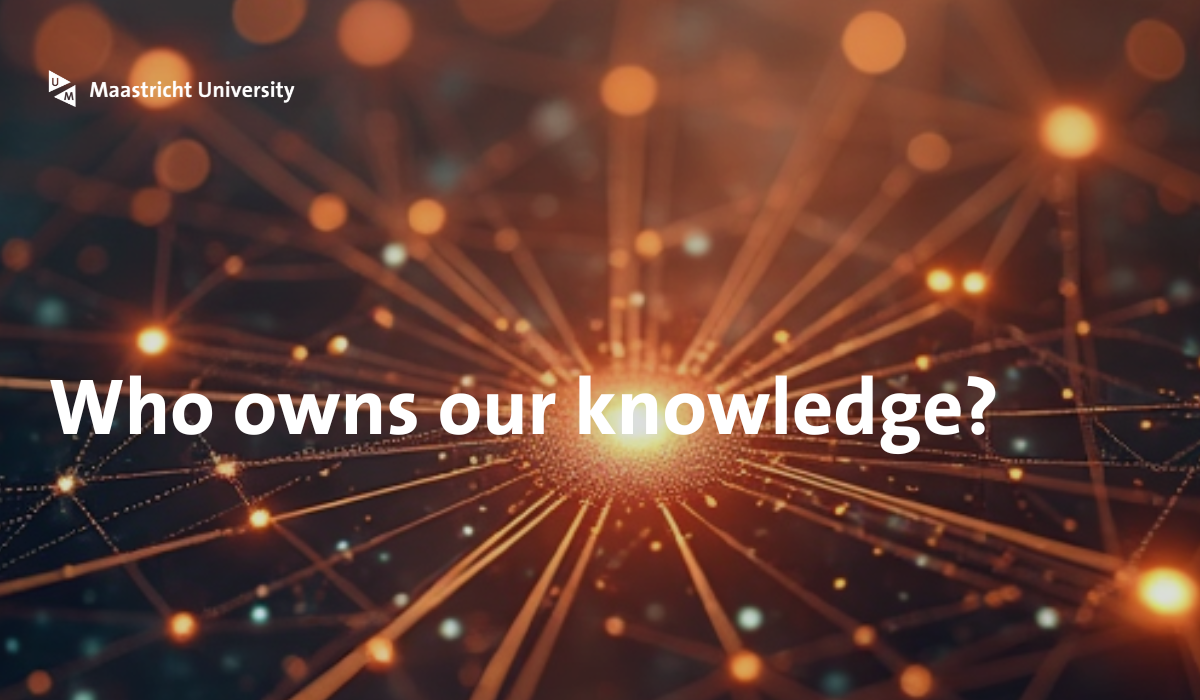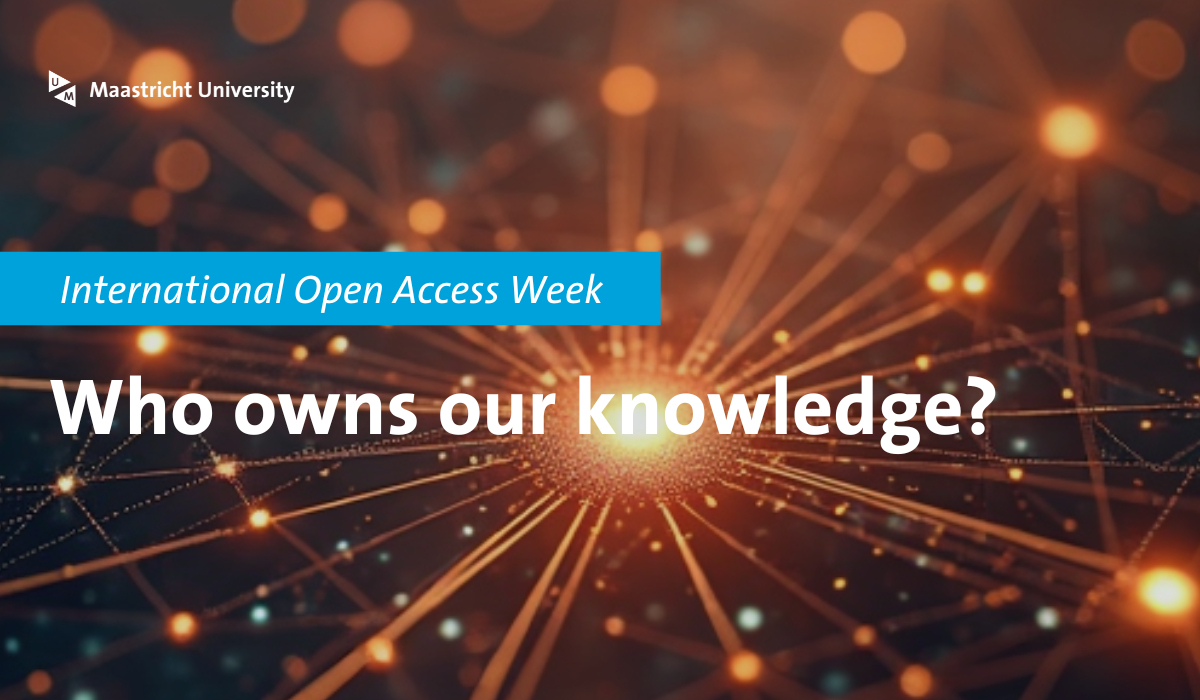International Open Access Week 2025 asks “Who Owns Our Knowledge?” and urges communities to reclaim control over how knowledge is created, shared, and valued.
Progress has been made with noncommercial, community-led publishing and policy changes, but threats like AI training and surveillance risk re-commercialising knowledge. The week (Oct 20–26) encourages local events, resources, and actions to promote community ownership of research and education.
Events worth your attention
Open Access Week 2025 offers numerous opportunities for the UM community to engage with these critical discussions.
Several events that deserve your particular attention:
OIPA Online Symposium – October 21, 2:30 PM CET
Exploring current open publishing landscapes and ground-breaking institutional publishing projects.
Artificial Intelligence in Open Science – October 21, 15:00
A YERUN Webinar During International Open Access Week. From the ways we discover and share knowledge to how we teach and assess learning, AI now permeates every layer of the open science ecosystem.
Open Divide Lecture – October 22, 5:00 PM CET
Wilhelm Peekhaus presents “Open Access and the Continued Exploitation and Alienation of Academic Labour”—a thought-provoking examination of power dynamics in scholarly publishing.
Netherlands Open Access Books Community Launch Webinar – October 28, 12:00-1:30 PM
Panel discussions on sustainable book publishing in the Netherlands that are directly relevant to our own Open Access Book Fund initiatives.
Fast Forward Open Science – October 22, 1:30-4:30 PM CET
The Circle U. alliance presents sessions on accelerating open science practices.
AfLIA Virtual Summit – Multiple sessions throughout the week
African perspectives on “Who owns our knowledge?” with four thematic tracks.
Who Owns Our Knowledge? The Future of Equitable Open Access – October 20, 10:00-11:30 AM
Opening session exploring the theme’s implications for global equity
We might add additional events later. If you know about interesting Open Access Week events, please let us know via openaccess@maastrichtuniversity.nl
Why ownership matters now
The “Who Owns Our Knowledge?” theme appears particularly timely given emerging challenges around artificial intelligence and knowledge extraction.
The rush to scrape academic knowledge for AI training without proper consultation or author consent raises fundamental questions about whether AI models trained on open research should themselves remain open. These concerns extend to broader issues of surveillance through publisher platforms and the need for transparent governance in digital knowledge spaces.
We’re witnessing editorial boards reclaiming ownership by resigning from commercial publishers, and institutions abandoning proprietary database products for faculty evaluation. Movements that resonate with a growing recognition that knowledge ownership patterns profoundly shape scholarly discourse.
Our response to the challenge
At Maastricht University, we’re taking concrete action to ensure it remains in community hands.
Our comprehensive approach to open access has already delivered impressive results: UM achieved a remarkable 91% Open Access score for publications in scholarly journals in 2024, demonstrating how systematic institutional commitment can create real change.
Through strategic combinations of publisher agreements, community-controlled publishing initiatives like Maastricht University Press, our innovative Taverne service, and Diamond Open Access projects, we’re pioneering multiple pathways to keep knowledge accessible and community-owned.
We’ll be sharing the full story of our open access endeavours throughout the remainder of this year in dedicated posts exploring how we’re putting the principles behind this year’s theme into practice.
Looking ahead
The week culminates with the National Open Science Festival on October 24 in Groningen, where we’ll have opportunities to engage with the broader Dutch Open Science community and explore how our Diamond Open Access work fits within national developments.
The festival promises interactive sessions, an information market, and ample networking opportunities across all disciplines. We’ll be reporting on key insights from this important gathering after the event.
Join the Conversation
The choices we make today, whether supporting Diamond Open Access initiatives, choosing community-aligned publishers, or advocating for transparent AI training practices, determine whether knowledge remains a shared resource or becomes increasingly commodified.
For questions about Open Access publishing options, Diamond Open Access opportunities, or support with navigating the changing scholarly communication landscape, contact the Research Support team. Follow our Research Support News section for additional Open Access content and subscribe to the Research Support Update.
More information and contact
Acknowledgement (sources)
Further reading
- Follow the links in the text
- UM|MUMC+ Publishing & Open Access Portal
Thanks for reading our posts. We would like to hear from you.
- Need help? Please use our Ask Your Librarian service for prompt answers to concrete questions and issues.
- If you have general questions, ideas, or feedback, please comment below or message us at openaccess@maastrichtuniversity.nl.
- UM scholars can also engage with us and discuss this topic in our UMployee group [intranet].
- Want to stay informed? Subscribe to our monthly Research Support Update to stay informed about changes and updates.



0 Comments